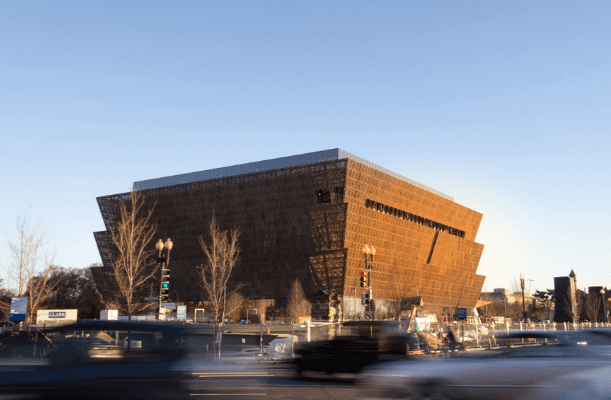Museums tell stories — about what was important to a culture, who people were, what they did, where they went and significant events that occurred during their lives.
Visiting a museum often allows you to learn about people and places that would otherwise be far out of reach. Museums are teachers, connecting people across language, distance and time.
This is why the announcement of reviewing what is in some of the nation’s museums to ensure they comply with the current administration’s directives is so concerning.
Earlier this month, the White House sent a letter to the Smithsonian Institution regarding a review of “selected Smithsonian museums and exhibitions.” According to the letter, the goal was to “ensure alignment with the President’s directive to celebrate American exceptionalism, remove divisive partisan narratives, and restore confidence in our shared cultural institutions.”
American exceptionalism, as defined by Britannica, is the idea that the U.S. is unique and perhaps even morally superior to other countries for religious, historical or ideological reasons.
This concept of American exceptionalism is, at best, an incomplete story. Maintaining this exceptionalism requires ignoring many of the country’s past choices.
Trump signed the Executive Order, Restoring Truth and Sanity to American History, on March 27, 2025.
Per this Executive Order, there has been an effort to rewrite and distort history and, “This revisionist movement seeks to undermine the remarkable achievements of the United States by casting its founding principles and historical milestones in a negative light.”
Telling American history in its fullness is not divisive or partisan, but determining which parts are told and suppressed surely is.
The message is clear when an institution intentionally removes parts of the story. But the inconvenience of the truth does not make it less true.

The National Museum of African American History and Culture (NMAAHC) is among the museums with exhibits under review by the White House. After centuries of African Americans living in this country and generations of stories going untold, the NMAAHC opened in 2016 with a glimmer of hope at telling these stories on a national stage.
Any efforts to conceal Black history, which is integral to American history, only serve to mold an incomplete narrative of this country.
Nikole Hannah-Jones, author of “The 1619 Project,” joined Clark Atlanta University professor Daniel Black on a panel titled “America’s Untold Truth.” During their discussion, Hannah-Jones said that Black people and Black history are, by definition, political.
“(Black) history is political because every story of American greatness, every story of American exceptionalism you wanna tell, here we are off to the corner saying, ‘How do you explain us?,” Hannah-Jones asked.
As Trump’s administration aims to form or reform a narrative of what America is, its efforts leave unanswered questions that can too easily be filled with falsehoods. America is a nation that espouses ideals of equality and freedom, but isn’t there more to the story?
“If all this is true, why are we (Black people) here?” Hannah-Jones said. “If all this is true, how do you explain how you suppressed our rights for 350 years, how you bought and sold our ancestors, how you claim to be democratizing Europe, but denying violently democracy for Black people here? So, we’re the most inconvenient people to the story of American exceptionalism. So, they want to ban our history because … we reveal the lie of this country, and we are heroes of that story.”
Having a national museum dedicated to uplifting Black history and culture was a dream realized.
I have walked through the NMAAHC a few times. I learned new things about the past. I rejoiced in what Black Americans have accomplished. I was hopeful for the future of what is yet to come.
If the stories of past achievements can be removed, they can say you never achieved anything. If the stories of a past atrocity can be removed, they can say it never happened at all.
We are now wrestling with what this country represents and who it belongs to, with whose stories stand the test of time and who gets to be. If ever there was a time to hold tight to the truth and to our collective history, this is it.
Contact Editor-in-Chief Camike Jones at 317-762-7850 or camikej@indyrecorder.com.
Camike Jones is the Editor-in-Chief of the Indianapolis Recorder. Born and raised in Indianapolis, Jones has a lifelong commitment to advocacy and telling stories that represent the community.








